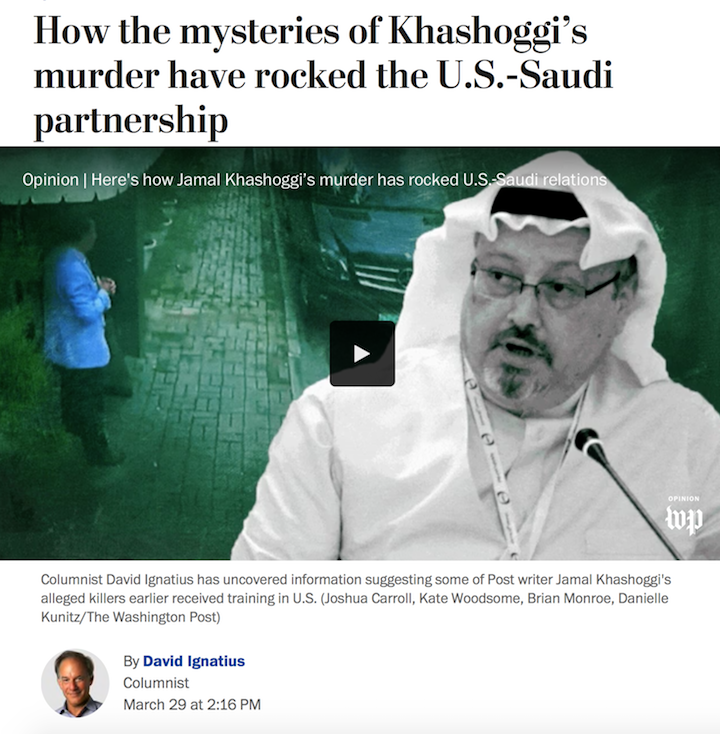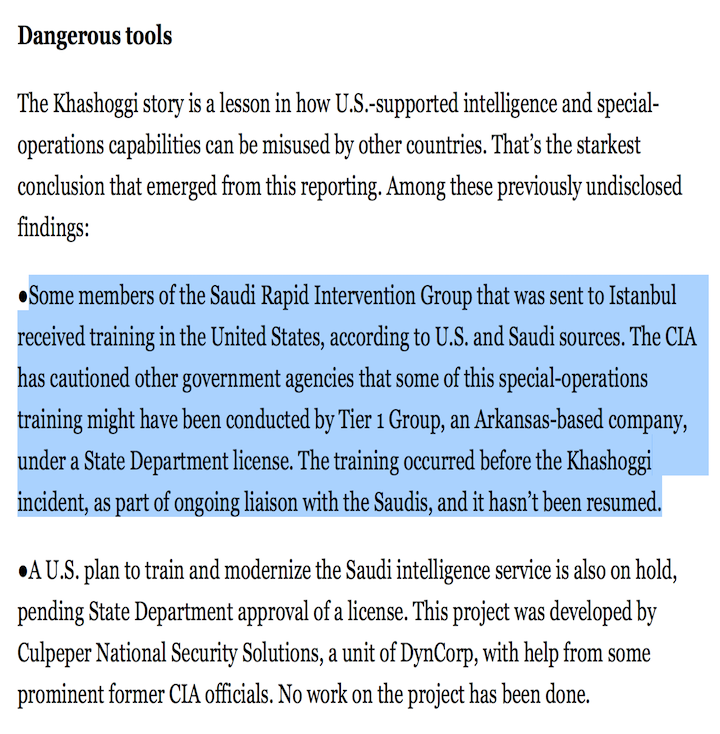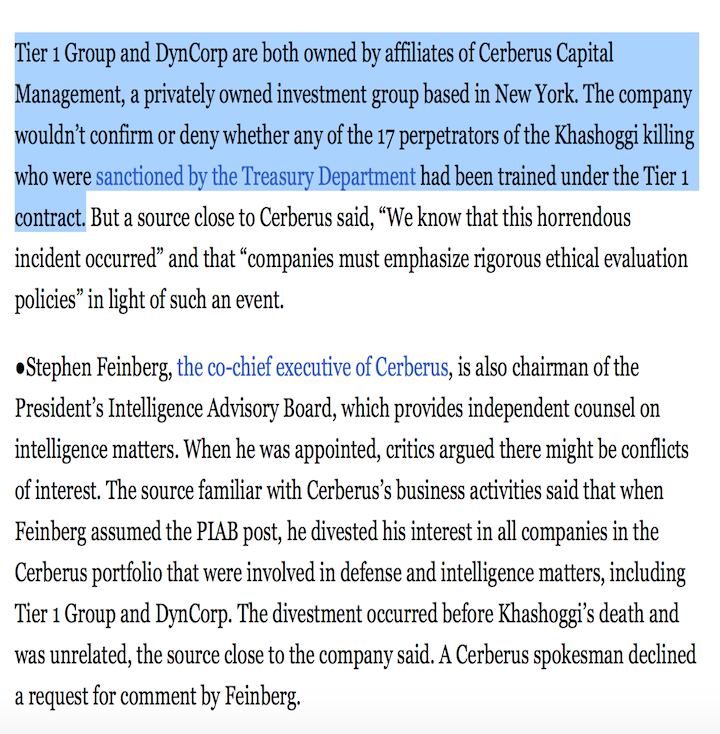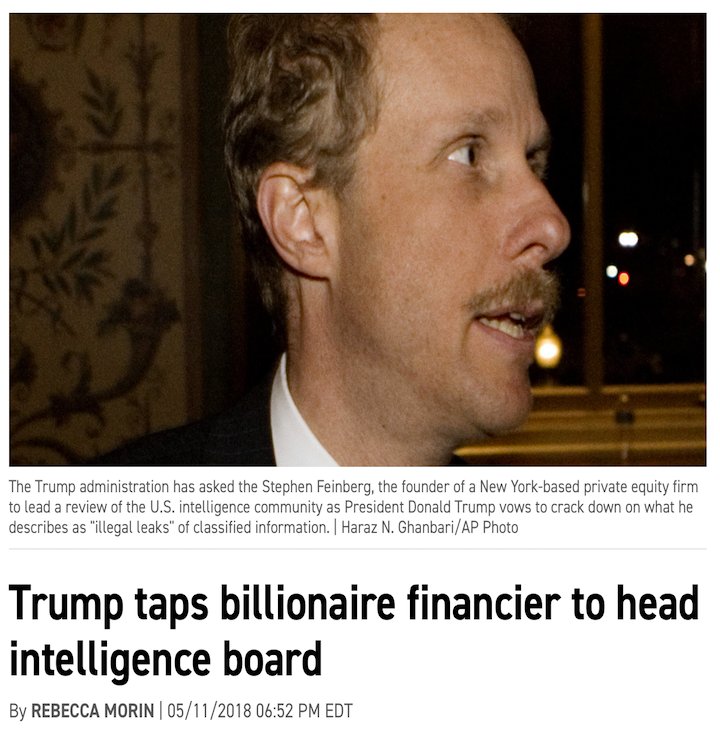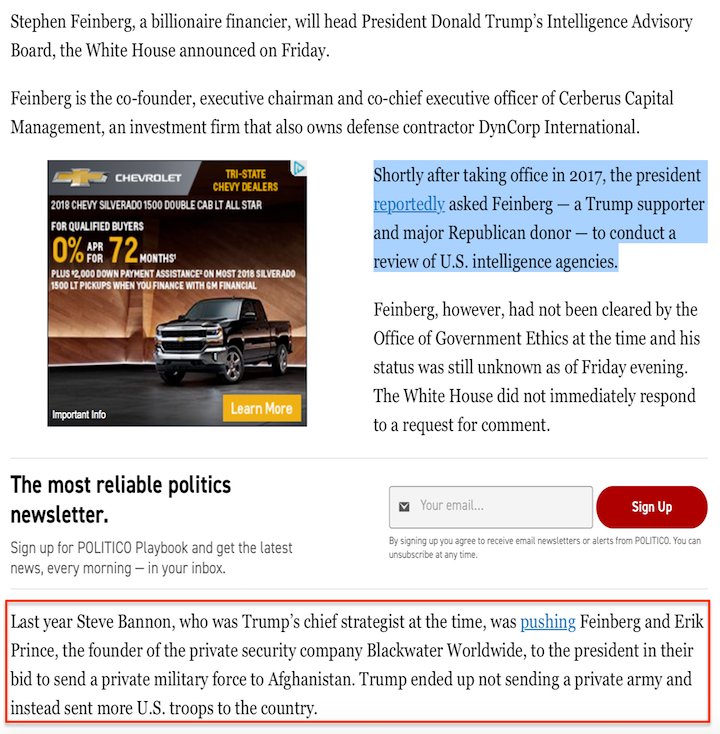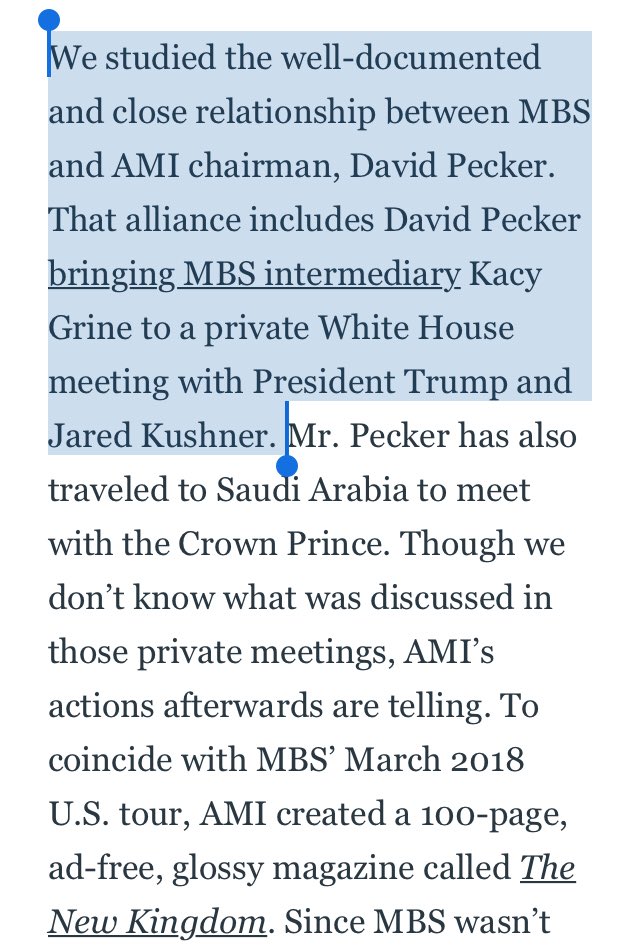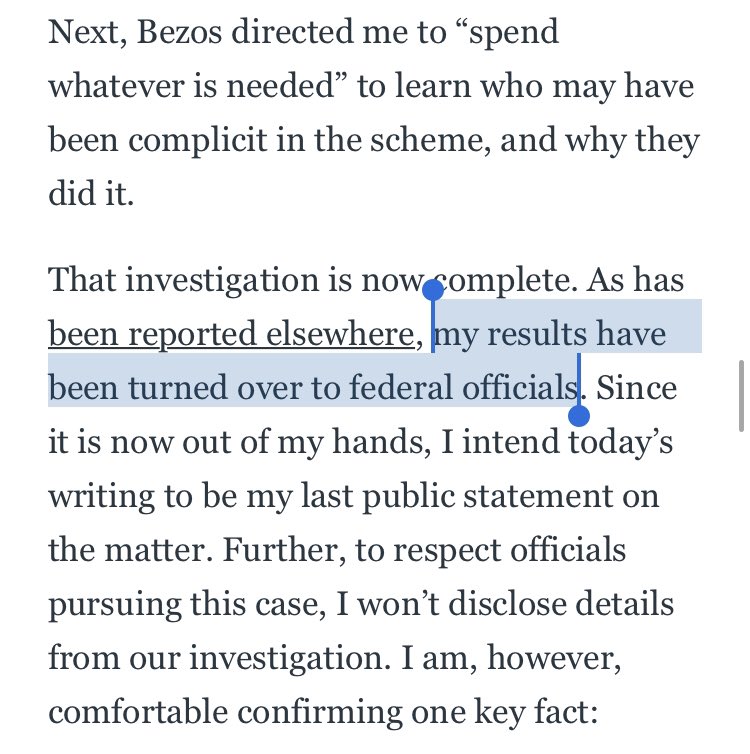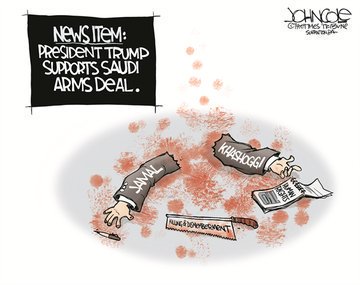No One Is Safe: How Saudi Arabia Makes Dissidents DisappearBy Ayman M. MohyeldinJuly 29, 2019
The assassination of Jamal Khashoggi was no aberration. A Vanity Fair investigation reveals how Saudi Arabia attempts to abduct, repatriate—and sometimes murder—citizens it regards as enemies of the state.
Saudi Arabia’s Mohammed bin Salman has been consolidating power—and silencing critics—since being named crown prince in 2017.By Ryad Kramdi/AFP/Getty Images.
Prince Khaled bin Farhan al-Saud sat in one of the few safe locations he frequents in Düsseldorf and ordered each of us a cup of coffee. With his close-cropped goatee and crisp gray suit, he looked surprisingly relaxed for a hunted man. He described his constant fear of being abducted, the precautions he takes when venturing outside, and how German law enforcement officials routinely check on him to make sure he is all right.
Recently, bin Farhan, who rarely grants interviews to Western reporters, had incensed the kingdom’s leaders with his calls for human rights reforms—an unusual grievance for a Saudi prince. What’s more, he spoke openly of his desire to establish a political movement that might eventually install an opposition leader, upending the kingdom’s dynastic rule.
As we sat over coffee, he relayed a story that at first sounded innocuous. One day in June 2018, his mother, who lives in Egypt, called him with what she thought was good news. The Saudi Embassy in Cairo had contacted her, she said, and had a proposal: The kingdom wanted to mend relations with the prince and was willing to offer him $5.5 million as a goodwill gesture. Since bin Farhan was struggling financially (reportedly due, in part, to a dispute with the ruling family), his mother welcomed this chance for a reconciliation. But as tempting as the overture was, he claimed he never considered it seriously. And when he followed up with Saudi officials, he realized the deal had a dangerous catch. They had told him he could collect his payment only if he personally came to a Saudi embassy or consulate. That immediately set off alarm bells. He declined the offer.
Two weeks later, on October 2, 2018, bin Farhan saw a startling news report. Jamal Khashoggi—the Saudi Arabian journalist and Washington Post columnist who had been writing articles critical of his homeland and working clandestinely to undermine some of the government’s social media initiatives—had gone to the Saudi consulate in Istanbul to pick up paperwork required for his pending marriage. Minutes after his arrival—as revealed in leaked audiotape transcripts compiled by Turkish authorities—Khashoggi was tortured and strangled by a Saudi hit squad. His body was then presumably carved up with a bone saw, the remains later carted away. The assassination was condemned by nations around the world, though Donald Trump, Jared Kushner, and others in the Trump administration are still on close terms with the Saudi leadership and have continued to conduct “business as usual” with the kingdom. In June, in fact, President Trump hosted a breakfast for Mohammed bin Salman, the country’s crown prince and de facto leader, and at a press session went out of his way to praise him: “I want to congratulate you. You’ve done a really spectacular job.”
Among those present at the consulate the day Khashoggi was killed was Maher Abdulaziz Mutreb, a close aide to Mohammed bin Salman, colloquially referred to as M.B.S., who since 2015 has been steadily consolidating power. Mutreb, according to the transcripts, made multiple calls during the ordeal, possibly to Saud al-Qahtani, the kingdom’s cybersecurity chief and overseer of clandestine digital operations. He may have even phoned M.B.S. himself, who was singled out this spring in a scathing U.N. report, which found “credible evidence” that he was likely complicit in Khashoggi’s “premeditated execution”—an accusation the country’s minister of state for foreign affairs called “baseless.” Mutreb—well-known in diplomatic circles, and one of the advisers who accompanied M.B.S. on his high-profile visit to the United States last year—gave a particularly chilling sign-off: “Tell yours: The thing is done. It’s done.”
Bin Farhan was dumbstruck as he watched television news shows and saw surveillance-camera footage of Khashoggi’s last hours alive. The prince realized all too clearly: By refusing to go to a Saudi consulate to pick up his payment, he might have narrowly avoided a similar fate.
MONTREAL
Omar Abdulaziz, like bin Farhan, is a Saudi dissident. An activist living in Canada, he had been an associate of Khashoggi’s. Together, they had planned to publicize the plight of the kingdom’s political prisoners and tried to sabotage the Saudis’ online propaganda efforts by sending out anti-government videos, mobilizing followers, and devising social media schemes to counterprogram messages posted by the regime.
Abdulaziz met me in a Montreal hotel where, the previous year, he had been living in hiding. He recounted aspects of an incident he had not discussed in great detail before. In May 2018, he said, two representatives of the royal court had shown up in Canada, bearing a message from M.B.S. The pair, accompanied by Abdulaziz’s younger brother Ahmed, a Saudi resident, arranged a series of rendezvous in Montreal cafés and public parks. They encouraged him to stop his activism and return home, urging him to visit the Saudi Embassy to renew his passport. The implicit understanding, he told me, was that if he continued with his political activities, his family might be endangered.
Over the course of their discussions, however, Abdulaziz became convinced that his brother was under duress from his Saudi companions. He recorded their conversations. He decided to turn down their offer. But his choice, he acknowledged, came with a heavy price. When his brother returned to the kingdom, according to Abdulaziz, he was put in jail, where he supposedly remains to this day. A month after his brother’s visit—and four months before Khashoggi’s murder—Abdulaziz discovered that his phone had been hacked, compromising sensitive plans he had been developing with Khashoggi.
Saudi officials did not answer VANITY FAIR’s questions about whether the kingdom attempted to forcibly repatriate Omar Abdulaziz and several others mentioned in this report. Moreover, neither the Saudi government nor the Saudi Embassy in Washington, DC, responded to multiple requests for comment about the disappearance and detention of various Saudi citizens referred to herein.
AL-TAIF
Yahya Assiri didn’t make much of it when the phone rang that morning in 2008. It was a high-ranking military officer summoning him to an urgent meeting at his office at the al-Taif Air Force base. Such calls were common for Assiri, a trusted logistics and supply specialist in the Royal Saudi Air Force.
Assiri, though stationed at al-Taif, had made a habit of venturing off base to visit the nearby markets and meet local farmers and traders who, like their ancestors, savored the temperate climate of their village, nestled in the slopes of the Sarawat Mountains. His sojourns, however, had also opened his eyes to the country’s rampant poverty. And Assiri, troubled by the economic hardship and disparity around him, began to spend his evenings signing into online chat rooms. He would post his evolving beliefs about social injustice, government corruption, and the harsh realities of life under the rule of the Saudi royal family.
Visiting chat rooms was not forbidden at the time. Social media was still in its infancy in much of the Arab world, and citizens sought out such forums as a way to carve out a space for public discourse, an avenue that was unavailable through state-controlled TV or radio. In the chat rooms, Assiri met other like-minded Saudis and, on occasion, they moved their friendships and their dissident views offline, meeting at each other’s houses and forging deep bonds—far from the watchful eye of the state. Or so they thought.
DISSIDENT PRINCE: Khaled bin Farhan al-Saud, an expat royal, in Germany; ROGUE OP: The Saudi 737 that carried Prince Sultan bin Turki, on a tarmac in France; ABDUCTED ACTIVIST: Feminist Loujain al-Hathloul, now imprisoned.
Top, by Rolf Vennenbernd/Picture Alliance/Getty Images; bottom, by Nina Manandhar.
The day his superior called him to his office, Assiri dutifully donned his military fatigues and went over to base headquarters. “Yahya!” the general said as Assiri arrived. “Have a seat.”
He did so, but not before stealing a quick glance at the general’s desk and spotting a classified folder labeled “ABU FARES.” The general asked him, pointedly, “Do you know how to use the internet well?”
“I don’t at all, sir,” Assiri shot back. “You don’t use the internet?” the general asked again.
“My wife occasionally uses it for recipes, but for the most part I don’t know how.”
The general grabbed the folder and began to thumb through it. “I received this file from the General Investigations Office, and it contains a lot of posts and online articles written by someone with the username Abu Fares. He is criticizing the kingdom. They told me they suspect that you are the one writing these articles.” He asked him, point-blank: “Are you Abu Fares?”
Assiri vehemently denied he was the author, but the general continued interrogating him. After a while, he backed off, seemingly persuaded of Assiri’s innocence. Al-Taif’s top brass, Assiri later learned, apparently believed the denials as well. As he left the office that day, he set a plan in motion. He applied for a military training program in London. He stashed away personal savings. And he submitted his resignation from the Air Force—a rarity, given the stature and income afforded military officers in Saudi society. Within 12 months of that fateful meeting, Assiri and his wife would leave their parents and siblings behind and depart for England, where he began a new life. He may have been 3,000 miles from Riyadh, but he was not beyond the kingdom’s reach.
THE DRAGNET
The prince, the activist, and the officer are the lucky ones. They are merely three examples of the untold number of dissidents who have become entangled in a far-reaching dragnet the Kingdom of Saudi Arabia uses to coerce, bribe, and entrap its critics. Sometimes the Saudi enforcers send operatives to foreign countries to silence or neutralize their perceived foes. Of those who are caught and detained, many end up “disappeared”—a phrase popularized in Latin America during the deadly roundups of the 1970s and ’80s. Some are imprisoned; others are never heard from again. While the first known Saudi abduction occurred in 1979 (when a prominent dissident vanished in Beirut), the practice has only escalated on M.B.S.’s watch.
The targets tend to be those whom the Saudi leadership consider to be working against the interests of the state: dissidents, students, rogue royals, prominent businessmen, and M.B.S.’s personal enemies in nearly a dozen countries, including the U.S., Canada, the U.K., France, Switzerland, Germany, Jordan, the United Arab Emirates, Kuwait, Morocco, and China. Saudi Arabian residents, of course, are not immune. This past April, 37 Saudis accused of insurgent views, including a man who was a minor when taking part in student demonstrations, were executed. And two years ago, M.B.S., as part of a “corruption purge,” converted the Ritz-Carlton Riyadh into a gilded gulag, ordering the detention and imprisonment of nearly 400 Saudi princes, moguls, and government officials. The supposed crackdown, however, was also a shakedown: Many were let go only after the government reportedly strong-armed them into turning over more than $100 billion in assets. The whereabouts of 64 of those detainees remains unclear.
Through interviews on three continents with more than 30 individuals—activists, national security experts, relatives of the forcibly disappeared, and American, European, and Middle Eastern government officials—a clearer picture has emerged about the extent to which Saudi authorities have gone to imprison, repatriate, and even murder countrymen who dare to protest the kingdom’s policies or somehow malign the image of the nation. On these pages are the stories of eight recent abductees—and those of four others who managed to elude capture—part of a systematic program that goes far beyond the killing of Jamal Khashoggi. The Saudi campaign is ruthless and relentless. And it has more similarities with, say, the codes of a crime syndicate than it does with those of a traditional, modern-era ally of the United States of America.
A WIDENING WEB
In many instances, the surveillance of Saudi dissidents began online. But the internet was at first a lifeline for millions of people in the region. During the Arab Spring of 2010–12, social media helped topple autocrats in Egypt, Tunisia, and Libya. Monarchs in a number of the Persian Gulf States began to fear the dissenters in their own countries, many of whom had aired their grievances or organized their protests online.
In Saudi Arabia, by contrast, the ruler at the time—King Abdullah—saw real value in social media, believing the web might actually serve to narrow the gap between the ruling family and its subjects. “In the beginning, the kingdom’s obsession with tracking social media was not to monitor dissidents or opponents, but rather to identify societal problems early on,” said a Western expat who lives in Saudi Arabia and advises the ruling elite and various ministries on matters of national security. “It was to give the kingdom a chance at identifying economic vulnerabilities and blind spots so it could intervene before that frustration exploded.”
During the early 2010s, the head of Abdullah’s royal court was Khaled al-Tuwaijry. According to various press accounts, he, in turn, relied on a young, ambitious law-school graduate named Saud al-Qahtani, who was tasked with assembling a team that would monitor all forms of media, with a special focus on cybersecurity. Like Assiri, al-Qahtani had been a member of the Saudi Air Force.
Over the years, Assiri and other government critics would learn that one of the popular chat rooms on the nascent web was actually a foil. Saudi cyber-operatives had allegedly set it up to entice others to join in and comment freely, only to be tricked into revealing details that would disclose their identities. One such forum, several activists told me, was believed to have been created by al-Qahtani, who, early on, had instructed the monarchy to treat the internet as a secret, potent monitoring tool. (Al-Qahtani did not respond to requests for comment.)
Since then, al-Qahtani is believed to have shaped the country’s broader cybersecurity efforts. His online network—according to human rights monitors and computer-threat experts—has included Saudi computer sleuths and hackers poised to go after government critics at home and abroad. As first reported by Vice’s Motherboard, al-Qahtani worked closely with Hacking Team, an Italian surveillance company that sells intrusion resources and “offensive security” capabilities around the globe. Others have traced Saudi government ties to the Israeli surveillance company NSO, whose signature spyware, Pegasus, has played a role in the attempted entrapment of at least three dissidents interviewed for this report.
The jet took off at 7:30 p.m. for Cairo. The cabin lights and in-flight monitors were suddenly turned off. The plane was redirected to Riyadh.
This aggressive posture first appeared around the time that M.B.S. became a senior adviser to the royal court, then ramped up in 2017, when he was appointed crown prince. At the time, his country faced plunging oil prices, a costly war in Yemen that was launched by M.B.S., a rising threat from Iran, the lingering effects of the Arab Spring, and internal social unrest. As the chairman of the country’s two most powerful governing bodies, the Council of Political and Security Affairs and the Council of Economic and Development Affairs, “the crown prince centralized power upwards to him,” in the words of an insider who apprises the Saudi government on security and policy. Soon, M.B.S. would have direct command over the country’s domestic and foreign intelligence services, its armed forces, the national guard, and other relevant security agencies. The prince was free to assemble his own teams in the official intelligence agencies—and in their more ad hoc offshoots, which is where al-Qahtani thrived as the head of both the Center for Studies and Media Affairs and the Saudi Federation for Cyber Security, Programming and Drones.
A ROGUE OPERATION?
Just days after Khashoggi’s murder, the kingdom rushed to contain the diplomatic fallout by calling the crime a “rogue operation.” But it was hardly an anomaly. It soon came to light that the regime had been sending squads across sovereign borders to physically repatriate Saudi dissidents. Indeed, shortly after the grisly hit job in Istanbul, a journalist from Reuters, who was briefed in Riyadh by an unnamed government official, was presented with what the reporter described in an article as “internal intelligence documents which appeared to show the initiative to bring back such dissidents as well as the specific one involving Khashoggi. There is a standing order to negotiate the return of dissidents peacefully; which gives them the authority to act without going back to the leadership.” These attempts to kidnap and return alleged offenders, according to the spokesperson quoted by Reuters, were part of the nation’s “campaign to prevent Saudi dissidents from being recruited by the country’s enemies.” (Two U.S.-based Saudis I spoke with told me that federal agents had recently approached them, handed over their business cards, and warned them that, based on up-to-date intelligence, they should heighten their personal security. The F.B.I. told VANITY FAIR that the bureau “regularly interacts with members of the communities we serve to build mutual trust around protecting the American public.”) Representative Adam Schiff, chairman of the House Intelligence Committee, has said he plans on examining “what threat is posed to [Saudi] individuals residing in the United States, but as well, what are the practices of [the Saudi government].”
Similar threats have surfaced in Canada (as described above) and Europe. In April, Iyad el-Baghdadi, an exiled Arab activist living in Oslo, was surprised when Norwegian security officials came to his apartment. According to el-Baghdadi, they told him they had received intelligence, passed along from a Western country, that suggested he was in danger. El-Baghdadi, who is Palestinian, had been a close associate of Khashoggi’s. In the months before Khashoggi’s murder, the two men, along with an American colleague, were developing a watchdog group to track false or manipulated messages being pushed out across social media and press outlets by Saudi authorities and their proxies. El-Baghdadi had been warned that M.B.S.’s leadership considered him an enemy of the state. In fact, according to el-Baghdadi, just weeks before the Norwegian officials paid him a visit, he had been helping Amazon determine that its CEO, Jeff Bezos, had been the subject of a Saudi hack-and-extortion plot. The Norwegians were not taking any chances, as el-Baghdadi recalled; they whisked him and his family to a safe house.
Some of these missions to silence or harm Saudi critics have occurred in countries closely allied to Riyadh. One brazen operation in France, for example, involved Prince Sultan bin Turki, who had lived in Europe for years. A grandson of King Ibn Saud, the kingdom’s founder, the prince had a longtime feud with powerful members of the monarchy, having accused them of corruption. In 2003, according to a complaint filed with Swiss prosecutors by a Geneva-based counsel working with bin Turki’s American lawyer Clyde Bergstresser, the prince had been drugged and secretly flown out of Switzerland to Saudi Arabia. For almost a decade, he was in and out of house arrest and prohibited from leaving the country.
Over time, the prince’s health deteriorated and he sought critical medical care in the U.S. He made a request to travel to the States, which was granted, and, after receiving treatment, he recovered to the point that he felt emboldened enough to strike back at his former captors, filing a lawsuit in 2014 against the regime, seeking formal criminal charges against Saudi leaders and monetary damages for the kidnapping. Though the suit went nowhere, such a move was unprecedented: a Saudi royal pursuing a legal complaint in a foreign court against his own family. Bergstresser told me he warned the prince that such an action could trigger an even more severe response from the kingdom than the 2003 abduction. “They came after you once,” he told his client. “Why wouldn’t they do it again?”
For the rest of the story, I turned to three American members of the prince’s entourage—whom I will call Kyrie, Adrienne, and Blake, to protect their identities. In January 2016, the trio, along with medical caretakers and friends, arrived at Le Bourget Airport, outside Paris, to board the prince’s private charter jet that was scheduled to fly from France to Egypt. Upon arriving, however, they saw a much larger plane, a Boeing 737–900ER, on the tarmac. (The three Americans remembered that their group was led to believe that the aircraft had been provided as a courtesy from the Saudi Embassy in Paris.)
A photograph of the plane, provided to VANITY FAIR and revealed here for the first time, shows the words “Kingdom of Saudi Arabia” emblazoned on the hull. The tail bears the country’s iconic emblem: a palm tree cradled between two swords. The tail number, HZ-MF6, according to online database registries, identifies the aircraft as being owned by the Saudi government. Moreover, these records denoted, the plane’s owner had requested that no public tracking of the jet be made available on the flight-tracking website FlightAware.
Upon boarding the plane, the security team noticed that all of the flight attendants were male. While this seemed odd, the prince and his entourage took their seats nonetheless, and settled in for the ride. The jet took off at 7:30 p.m. for Cairo. A few hours into the flight, the cabin lights and in-flight monitors were suddenly turned off. The plane was redirected to Riyadh.
Upon landing, Kyrie recalled, armed security forces came aboard and physically removed bin Turki from the plane. As he was dragged to the tarmac, he shouted a single name over and over: “Al-Qahtani! Al-Qahtani!” Kyrie remembered the prince turning red with rage, his body sunken into the arms of his captors.
Kyrie and Blake said the remaining passengers were stripped of their phones, passports, and laptops, and taken to the Ritz-Carlton in Riyadh. The following day, the members of the entourage were escorted one by one to a conference room and ordered to sign what amounted to nondisclosure agreements, promising never to discuss what happened on the flight. They were held for three days before being driven to the airport and flown out of the country.
Also in the room at the Ritz, they recalled, was a clean-shaven, unarmed individual dressed in a traditional white thobe and ghutra, the red-and-white headdress favored by Saudi men. Kyrie and Adrienne told me that the man was, in fact, Saud al-Qahtani: Both were able to identify him two years later when, after Khashoggi’s murder, they recognized his face from news reports. Since then, neither the three Americans on board, nor the Saudi insiders I have spoken with, know bin Turki’s whereabouts.
Like bin Turki, two other notable princes, both living in Europe, were similarly kidnapped. Prince Saud Saif al-Nasr, while residing in France, tweeted a message publicly endorsing a 2015 letter by activists calling for a coup. He would mysteriously disappear. One exiled Saudi friend of his told me that he believes the prince had been lured into participating in a dubious business project that was actually a ruse meant to force him to come to the kingdom against his will. A second prince, Turki bin Bandar—a senior officer in the Saudi police force who had fled to Paris—used his YouTube channel to demand political change back home. He even recorded and posted a phone conversation in which a Saudi official could be heard trying to tempt him to come home. In 2015, however, he was stopped at an airport in Morocco on what Rabat authorities claimed was an Interpol warrant and forcibly transferred to Saudi Arabia.
Prince Salman bin Abdul Aziz bin Salman was nabbed on his home turf. A high-profile royal married to the daughter of the late King Abdullah, he moved with ease among American politicians and European royals, and, according to a palace insider who knows him well, was a critic of M.B.S. Last year, bin Salman—who just days before Trump’s election had met with Democratic donors and Schiff, a Trump nemesis—disappeared after being summoned to one of the royal palaces in Riyadh. While the prince was initially held for “disrupting the peace,” according to a Saudi statement, he was never charged with a crime and remains in detention, along with his father, who had lobbied for his release.
One of the few semi-official statements ever made about the royals abducted from Europe came in 2017 from the former head of Saudi Arabia’s foreign intelligence service, Prince Turki al-Faisal, who dismissed the “so-called princes” as “criminals.” Said al-Faisal: “We don’t like to publicize these things because we consider them our domestic affairs. Of course, there were people who worked to bring them back. [The men] are here; they didn’t disappear. They are seeing their families.”
Regardless of the credibility of al-Faisal’s statements, well-heeled princes are not the only targets of the long arm of the regime. So, too, have been a variety of others, including businessmen, academics, artists, Islamists critical of the regime, and, according to Reporters Without Borders, 30 journalists who are currently in detention.
NO ONE IS SAFE
Nawaf al-Rasheed, a poet, is a descendent of a prominent tribe that has had historical claims to the Saudi throne. While he was not a political figure and rarely made public appearances or statements, his lineage, according to experts and relatives, was enough for M.B.S. to consider him a threat—someone in exile who, theoretically, could be recruited to help cultivate a rival clan with the aim of deposing the House of Saud. On a trip to neighboring Kuwait last year, al-Rasheed was stopped at the airport as he tried to leave the country and was forcibly returned to Saudi Arabia. Held incommunicado for 12 months, he was never charged with a crime. Though he was purportedly released earlier this year, these same sources say that repeated attempts to contact him have been unsuccessful.
Advisers to royal courtiers have been nabbed as well. Faisal al-Jarba was an aide and confidant of Prince Turki bin Abdullah al-Saud, a potential M.B.S. rival. In 2018, al-Jarba was at his family home in Amman when Jordanian security forces entered the premises, guns drawn and faces covered, and whisked him away. According to family members who have strong ties to the country’s leadership, he was taken to the Saudi Embassy in Amman, then driven under the cover of darkness to the border and handed over to Saudi authorities.
Also at risk, according to academic and diplomatic sources, are Saudi foreign exchange students. Some who have been vocal about the kingdom’s human rights record have suddenly had their financial aid suspended. One graduate student—as revealed in emails obtained from the Saudi Embassy in Washington, DC—was informed that the only way to resolve an impending suspension would be to immediately return to Saudi Arabia to file an appeal.
By Ryad Kramdi/AFP/Getty Images.
The case of Abdul Rahman al-Sadhan is particularly troublesome. A Saudi citizen—and the son of an American—al-Sadhan was a 2013 graduate of Notre Dame de Namur University in Belmont, California. After earning his degree, he returned to the kingdom to be part of what he thought would be a changing nation. He worked for five years in the Saudi Red Crescent Society, a humanitarian organization. Then, on March 12, 2018, uniformed men showed up at his office, saying he was wanted for questioning. He left with the authorities and, according to his U.S.-based mother and sister, would never be heard from again. His relatives believe his forced disappearance may have been prompted by his online activity, including social media posts that were often critical of the state. But they can’t prove anything; al-Sadhan has never been charged with a crime.
The day after al-Sadhan disappeared, another student, Loujain al-Hathloul, vanished as well. Enrolled at Abu Dhabi’s Sorbonne University campus, she got into her car after a brief meeting, never to reappear at school. A prominent activist among Saudi feminists, al-Hathloul had decried how her country, despite recent reforms, continued to discriminate against women. Ironically, her vision for modernization, in many ways, mirrored the rhetoric of the crown prince, who had been promising the West he was embarking on a program of social liberalization.
Al-Hathloul would later resurface in a Saudi prison. According to accounts provided by human rights organizations, she was subjected to torture and sexual harassment. And during her periodic visits with family members, she identified one of the men who was involved in her interrogation: Saud al-Qahtani. The Saudi government, despite multiple accounts to the contrary, denies it has tortured its detainees. (Around the time of al-Hathloul’s disappearance, her husband, Fahad al-Butairi—one of the Arab world’s most popular comedians—went missing in Jordan. Repeated attempts to contact him for his version of events were unsuccessful.)
Some of al-Hathloul’s fellow women activists have been put on trial. Saudi prosecutors have charged them with colluding with “foreign agents”—human rights workers, diplomats, the Western press, and Yahya Assiri. Their alleged crimes: conspiring to undermine the stability and security of the kingdom. As evidence, the Saudis have been purportedly using electronic communications seized through cyberattacks on dissidents and activists, some of whom were interviewed for this article.
THE AFTERMATH
_The perpetrators of these crimes may never be brought to justice. While several members of the team that killed Jamal Khashoggi have reportedly been brought before Saudi judges, the proceedings have taken place behind closed doors. Al-Qahtani has been reprimanded: implicated in the Khashoggi murder, the torture of women activists and detainees at the Ritz-Carlton, the disappearance of Saudi royals, and the planning of cyber-assaults on dissidents. But despite these charges, as yet unproven—and sanctions placed on him by the U.S. Treasury Department for his involvement in the Khashoggi operation—al-Qahtani is still believed by some Saudi experts to be a free man with considerable influence behind the scenes.
For his part, Assiri, the Air Force officer turned online dissident, has no regrets about leaving his homeland. After moving to London, Assiri—who had been in frequent touch with Khashoggi in the last months of his life—did the unthinkable. In 2013, he revealed himself online as Abu Fares. Lately, he has become one of Saudi Arabia’s most respected and influential human rights defenders, having started a small organization called ALQST. He maintains a network of activists and researchers inside the kingdom who secretly investigate evidence of torture, human rights abuses, and information about disappeared citizens.
Assiri’s fate, he admits, was sealed the day he was confronted by his commanding officer. Had he not lied convincingly, he might be languishing in a Saudi prison like his friend Waleed Abu al-Khair, an activist he first met in a chat room 13 years ago. Today, Waleed’s picture hangs in Assiri’s office and serves as a chilling token of the perils that come with being one of Saudi Arabia’s hunted.
https://www.vanityfair.com/news/2019/07 ... -disappear 


